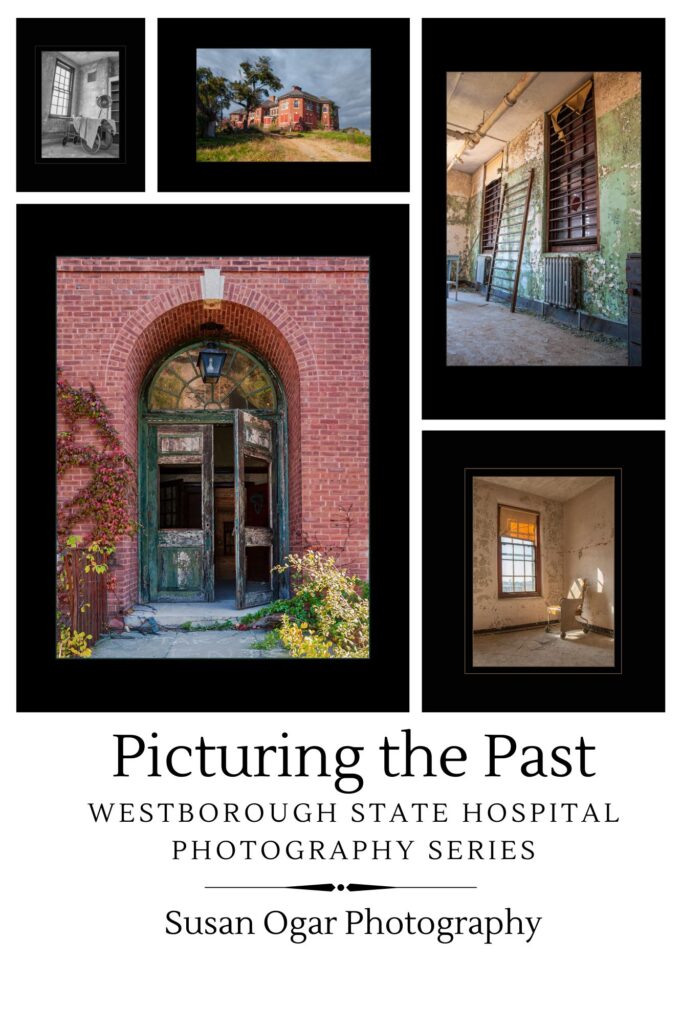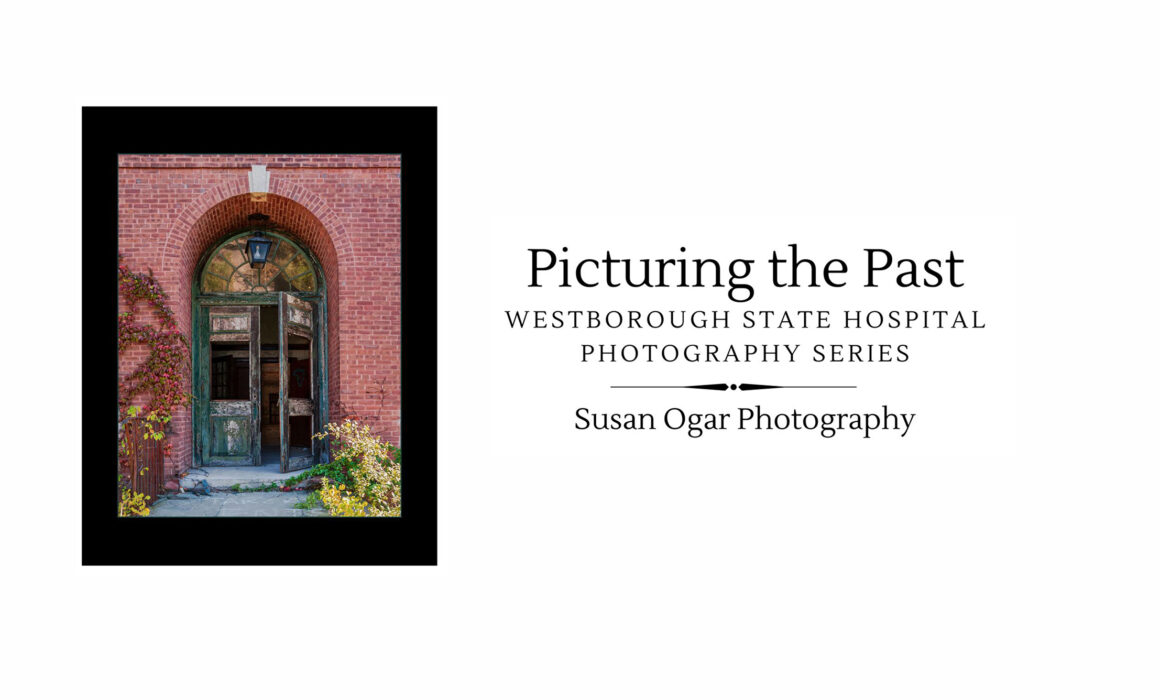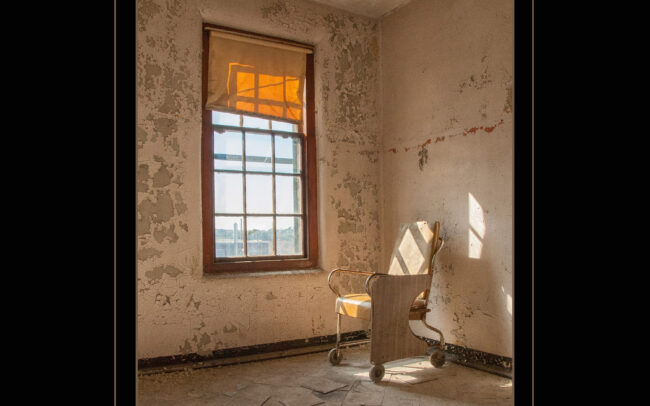Picturing the Past
 I was drawn to photograph the Westborough State Hospital for several reasons before it was recently demolished. Its history, outer beauty, personal connections, and its deep well of stories were a strong lure. The rich history and my childhood imagination drew me to the subject.
I was drawn to photograph the Westborough State Hospital for several reasons before it was recently demolished. Its history, outer beauty, personal connections, and its deep well of stories were a strong lure. The rich history and my childhood imagination drew me to the subject.
Established in 1884, the Westborough State Hospital was originally known as “Westborough Insane Hospital.” Set on more than 600 acres, the hospital was closed in 2010, due to budgetary issues and in anticipation of a new Worcester State Hospital.
By 1895, Westborough boasted the highest recovery rate in the state, and the hospital was known to be the second homeopathic state hospital in the nation and the first in Massachusetts. Around 1910, farming operations were added as a therapeutic treatment. This addition, along with a stable, greenhouse, and fields of vegetables, create a more serene feel to the property.
African-American psychiatrist Solomon Carter Fuller, a pioneer in his field, spent most of his career practicing at the hospital in the early 1900s. Fuller was involved in ground-breaking research on the brains of Alzheimer’s patients. He himself was one of 5 who studied under German psychiatrist Alois Alzheimer who identified the first case of what became known as Alzheimer’s disease. My father died last year in May 2022 of Alzheimer’s disease.
As a child, spending summers in Gloucester, MA, my older brothers and I would explore abandoned places in the late ’70s and early ’80s. Back then, it was typical for kids to spend extended time exploring nature and the world without the watchful eye of adults. These afternoons and evenings of adventures are the roots of my love for all things abandoned. Even as a little kid, I loved the look of the peeling paint and the texture of rusted metal and considered the potential lives that came before me.
Most of all, I loved the stories I could create about the various locations. One of these places was called Camp Stella Maris. Camp Stella Maris was a Catholic summer camp for youth located in West Gloucester. I was about 7 or 8 the first time we explored the property, and I was stunned to see that the cabins still had beds with linen and dishes in the cabinets. I vividly remember seeing a pile of silverware weighing down a sagging old mattress in one of the cabins. It was like one day, everyone who was attending and working at the camp just walked away. All I could think was, “What happened here? What are the stories? Who were the characters?” Years later, I used to dream about running away and living in one of the old camp buildings on the marsh. No one would ever look for me there.
Fast forward 40 years, I stumbled upon the Westborough State Hospital and became enamored with how nature was taking back the abandoned property. When I photographed the property, I wore an N95 mask (prior to Covid) due to the fact that a number of the buildings contained asbestos and lead paint. Several of the images in the exhibit are specifically of that peeling paint. Some of the structures had partially collapsed roofs and plants could be seen growing inside. I titled one of my Photographs “If These Walls Could Talk.” What stories would the hundreds of patients and healthcare workers tell?
The hospital was added to the National Register of Historic Places in 1994. Still, somehow despite that, in 2019, I watched sadly as bulldozers demolished the magnificent architecture of arched brick doorways, wide front porches, and classic cupolas. Once proud-looking buildings and later decaying shells. I saw the beauty in both. There was such allure in nature taking back the land. Plants and trees literally reclaim the property. My hope is the images of beautifully conflicted history in the exhibit make the viewer think and feel.
The Photographic Exhibit will be on display at the Northborough Free Library starting October 2, 2023.
The Photographic Exhibit was previously on display at the Westborough Library.


